I have to decode a JSON with a big structure and a lot of nested arrays. I have reproduced the structure in my UserModel file, and it works, except with one property (postcode) that is in a nested array (Location) that sometimes is an Int and some other is a String. I don't know how to handle this situation and tried a lot of different solutions. The last one I've tried is from this blog https://agostini.tech/2017/11/12/swift-4-codable-in-real-life-part-2/ And it suggests using generics. But now I can't initialize the Location object without providing a Decoder():
Any help or any different approach would be appreciated. The API call is this one: https://api.randomuser.me/?results=100&seed=xmoba This is my UserModel File:
import Foundation
import UIKit
import ObjectMapper
struct PostModel: Equatable, Decodable{
static func ==(lhs: PostModel, rhs: PostModel) -> Bool {
if lhs.userId != rhs.userId {
return false
}
if lhs.id != rhs.id {
return false
}
if lhs.title != rhs.title {
return false
}
if lhs.body != rhs.body {
return false
}
return true
}
var userId : Int
var id : Int
var title : String
var body : String
enum key : CodingKey {
case userId
case id
case title
case body
}
init(from decoder: Decoder) throws {
let container = try decoder.container(keyedBy: key.self)
let userId = try container.decode(Int.self, forKey: .userId)
let id = try container.decode(Int.self, forKey: .id)
let title = try container.decode(String.self, forKey: .title)
let body = try container.decode(String.self, forKey: .body)
self.init(userId: userId, id: id, title: title, body: body)
}
init(userId : Int, id : Int, title : String, body : String) {
self.userId = userId
self.id = id
self.title = title
self.body = body
}
init?(map: Map){
self.id = 0
self.title = ""
self.body = ""
self.userId = 0
}
}
extension PostModel: Mappable {
mutating func mapping(map: Map) {
id <- map["id"]
title <- map["title"]
body <- map["body"]
userId <- map["userId"]
}
}
